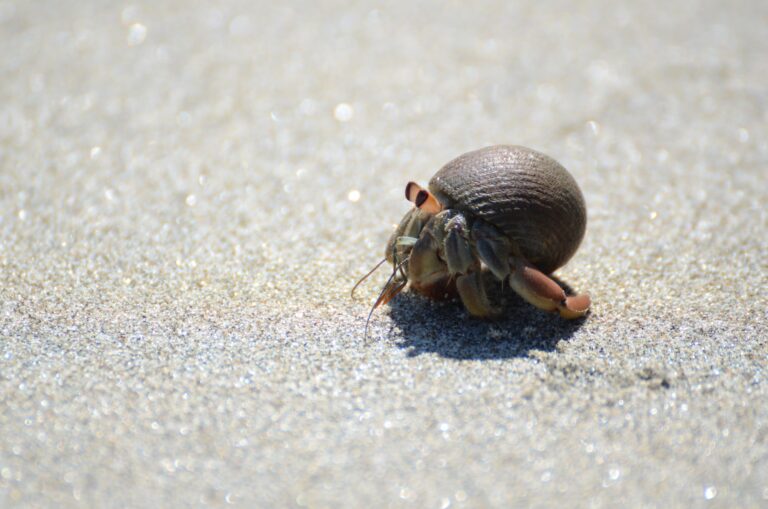Project Description
Global environmental changes such as climate warming and pollution are major threats to biodiversity, ecosystem functioning, and wellbeing. However, the effects of these stressors are often considered in isolation, despite the potential for stressor interactions which mediate overall effects. Animal behaviour is the most flexible component of the phenotype and therefore presents a pervasive signal to rapidly detect environmental change effects which precede ecosystem-level impacts. Therefore, a firm understanding of behavioural responses to synergising environmental changes could enhance predictions of effects at multiple biological scales with appropriate model species. However, behavioural studies urgently need to consider non-additive environmental change effects, extreme events, population-level differences, and improve realism between laboratory and field to advance and implement results (Fisher et al., 2021).
This studentship will address these shortcomings and make a step-change in animal behaviour research in the face of multiple stressors. You will use the recently established hermit crab model system, developed in collaboration with others by the first supervisor (Briffa et al., 2023), and measure various trait responses under multiple environmental changes. Assessments will be done among crab populations in N. Ireland and Scotland over a gradient of anthropogenic disturbances and will develop methods to compare results and improve realism between laboratory and field. Behavioural end-points will span well-established indicators, including resource assessment and use, contests, personality and risk taking, while proximate mechanisms will be examined through assessment of RNA signal expression to quantify stress. Moreover, you will link behavioural responses to wider ecological functions through common garden experiments and network analysis, to examine potential cascading ecological effects resulting from environmental changes (Wilson et al., 2020). This studentship will therefore integrate multiple animal behaviour signals, environmental changes, experimental practicalities, and population characteristics to elucidate emergent effects of global change on animal behaviour.
Using the hermit crab, Pagurus bernhardus, the specific objectives are to:
- Assess cognitive responses to multiple stressors, such as simultaneous warming and deoxygenation, across a gradient from conventional laboratory conditions towards realistic field enclosures on shorelines;
- Examine contest outcomes under static and sinuous current and future temperature regimes using programmed temperature profiles which resemble heatwaves;
- Compare population-level cognitive responses to environmental change between crabs from anthropogenically-impacted (e.g., marinas) and protected areas, while integrating historic field data to quantify relevant stressors and their background levels;
- Determine whether behavioural signals (e.g., boldness) are reflected in consumptive effects, such as functional responses and resource preferences between carnivory and omnivory. Effects of other contexts such as higher predators (e.g., shore crabs) and gastropod shelter resource availability on trophic interaction strengths across ecological networks under environmental change will be considered.
The student will gain a range of transferable skills, including: experimental design and implementation, advanced statistical techniques, field-based methods, molecular approaches, and oral and written communication skills to a wide range of local and international stakeholders.
CANDIDATE BACKGROUND
Essential: A BSc, 2:1 or higher, in a relevant subject such as Biological Science, Zoology or Animal Behaviour.
Desirable: Experience in animal behaviour experiments, field work, and statistical analyses would be an advantage. Although, full training will be provided.
Photo by Jan Zikán on Unsplash
Supervisors
Gareth ArnottPrimary Supervisor: | Profile: Gareth Arnott Email: g.arnott@qub.ac.uk Institution: Queen's University, Belfast Department/School: School of Biological Sciences |
David N. FisherSecondary Supervisor: | Profile: David N. Fisher Email: David.fisher@abdn.ac.uk Institution: University of Aberdeen Department/School: School of Biological Sciences |
Ross CuthbertAdditional Supervisor: | Profile: Ross Cuthbert Email: r.cuthbert@qub.ac.uk Institution: Queen's University, Belfast Department/School: School of Biological Sciences |
References
Briffa, M., Arnott, G., Hardege, J.D. 2024. Hermit crabs as model species for investigating the behavioural responses to pollution. Science of the Total Environment, 906: 167360. https://doi.org/10.1016/j.scitotenv.2023.167360
Fisher, D.N., Kilgour, R.J., Siracusa, E.R., Foote, J.R., Hobson, E.A., Montiglio, P-O., Saltz, J.B., Wey, T.W., Wice, E.W. 2021. Anticipated effects of abiotic environmental change on intraspecific social interactions. Biological Reviews, 96: 2661-2693. https://doi.org/10.1111/brv.12772
Wilson, M.W., Ridlon, A.D., Gaynor, K.M., Gaines, S.D., Stier, A.D., Halpern, B.S. 2020. Ecological impacts of human-induced animal behaviour change. Ecology Letters, 23: 1522-1536. https://doi.org/10.1111/ele.13571
QUADRAT Themes
- biodiversity
- environmental-management






















































